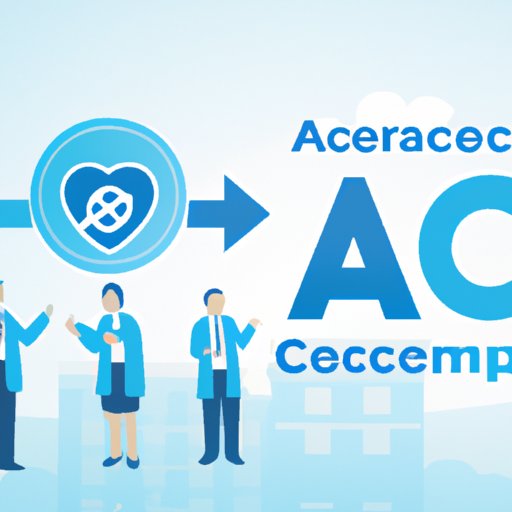Introduction
Accountable Care Organizations (ACOs) are a type of managed care organization that seeks to improve the quality of care and reduce costs for patients by coordinating care across multiple providers. An ACO is a network of health care providers who agree to be held accountable for providing coordinated care to their patients, with the goal of improving the quality of care while reducing costs. In essence, an ACO is a group of medical professionals and institutions that work together to provide the most efficient and effective care for their patients.

Overview of Problems ACOs Solve
ACOs seek to address some of the most pressing problems facing the health care system today: rising costs, inadequate access to care, poor coordination of care, and lack of accountability. By streamlining processes, reducing administrative costs, and negotiating lower prices from providers, ACOs can help to reduce overall health care costs. Additionally, ACOs can improve quality of care by utilizing performance-based payment models and evidence-based practices. Finally, ACOs can benefit primary care providers by increasing accountability and enhancing patient relationships.
How ACOs Help Reduce Health Care Costs
One of the primary goals of an ACO is to reduce health care costs. This is achieved through a variety of strategies, including streamlining processes, reducing administrative costs, and negotiating lower prices from providers. Streamlining processes involves eliminating redundant or unnecessary steps in the delivery of care, such as reducing paperwork or eliminating duplicate tests. Reducing administrative costs includes measures such as reducing overhead costs and utilizing electronic medical records. Finally, ACOs can negotiate lower prices from providers by leveraging their collective buying power.

The Benefits of ACOs for Patients
ACOs offer several key benefits for patients. First, they can improve the quality of care by ensuring that all providers are working together to provide the best possible care. Second, they can increase access to care by making it easier for patients to access the care they need. Third, they can improve coordination of care by ensuring that all providers are on the same page when it comes to treatment plans. Finally, they can provide better continuity of care by establishing a single point of contact for patients.
Improving Quality of Care Through ACOs
ACOs can also help to improve the quality of care by utilizing performance-based payment models and evidence-based practices. Performance-based payment models reward providers for meeting certain quality metrics, such as improved patient outcomes or reduced readmission rates. Evidence-based practices involve utilizing the latest research and data to make decisions about patient care. By utilizing both of these approaches, ACOs can ensure that their patients receive the highest quality of care.
Examining the Impact of ACOs on Primary Care Providers
Primary care providers are essential to the success of ACOs, as they are often the first point of contact for patients. As such, ACOs can have a positive impact on primary care providers by increasing their accountability and enhancing patient relationships. ACOs can also help to align incentives with quality of care, providing a financial incentive for providers to deliver the best possible care to their patients.

Exploring the Role of Technology in ACOs
Technology is playing an increasingly important role in ACOs. Automation of administrative tasks can reduce the amount of time spent on paperwork, freeing up more time for providers to spend with patients. Additionally, technology can improve accessibility of care by enabling patients to access their medical records online. Finally, technology can enhance patient engagement by providing tools such as telemedicine, allowing patients to connect with their providers remotely.
Conclusion
Accountable Care Organizations (ACOs) are an important part of the health care landscape, offering numerous benefits for patients, providers, and the health care system overall. By streamlining processes, reducing administrative costs, and negotiating lower prices from providers, ACOs can help to reduce health care costs. Additionally, they can improve the quality of care by utilizing performance-based payment models and evidence-based practices. Finally, they can benefit primary care providers by increasing accountability and enhancing patient relationships. The role of technology in ACOs is also becoming increasingly important, as it can help to automate administrative tasks, improve accessibility of care, and enhance patient engagement.
In conclusion, ACOs offer numerous solutions to the challenges faced by the health care system today. By taking a comprehensive approach to health care delivery, ACOs can reduce costs, improve quality of care, and benefit primary care providers. As the health care system continues to evolve, ACOs will remain an integral part of the solution.
(Note: Is this article not meeting your expectations? Do you have knowledge or insights to share? Unlock new opportunities and expand your reach by joining our authors team. Click Registration to join us and share your expertise with our readers.)
